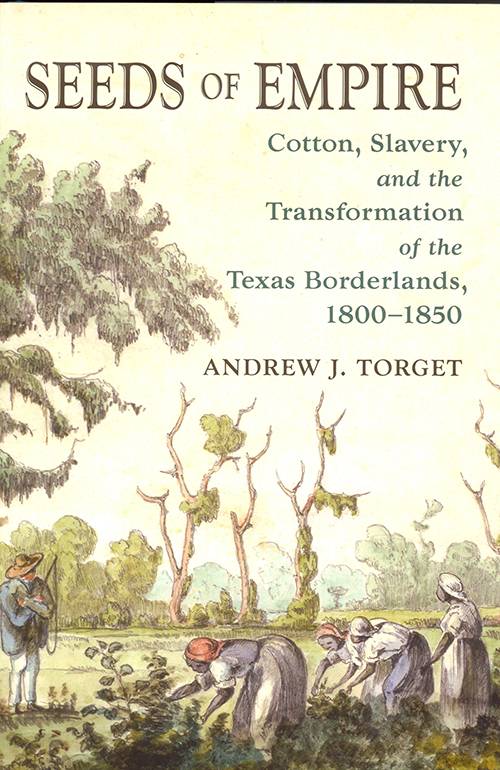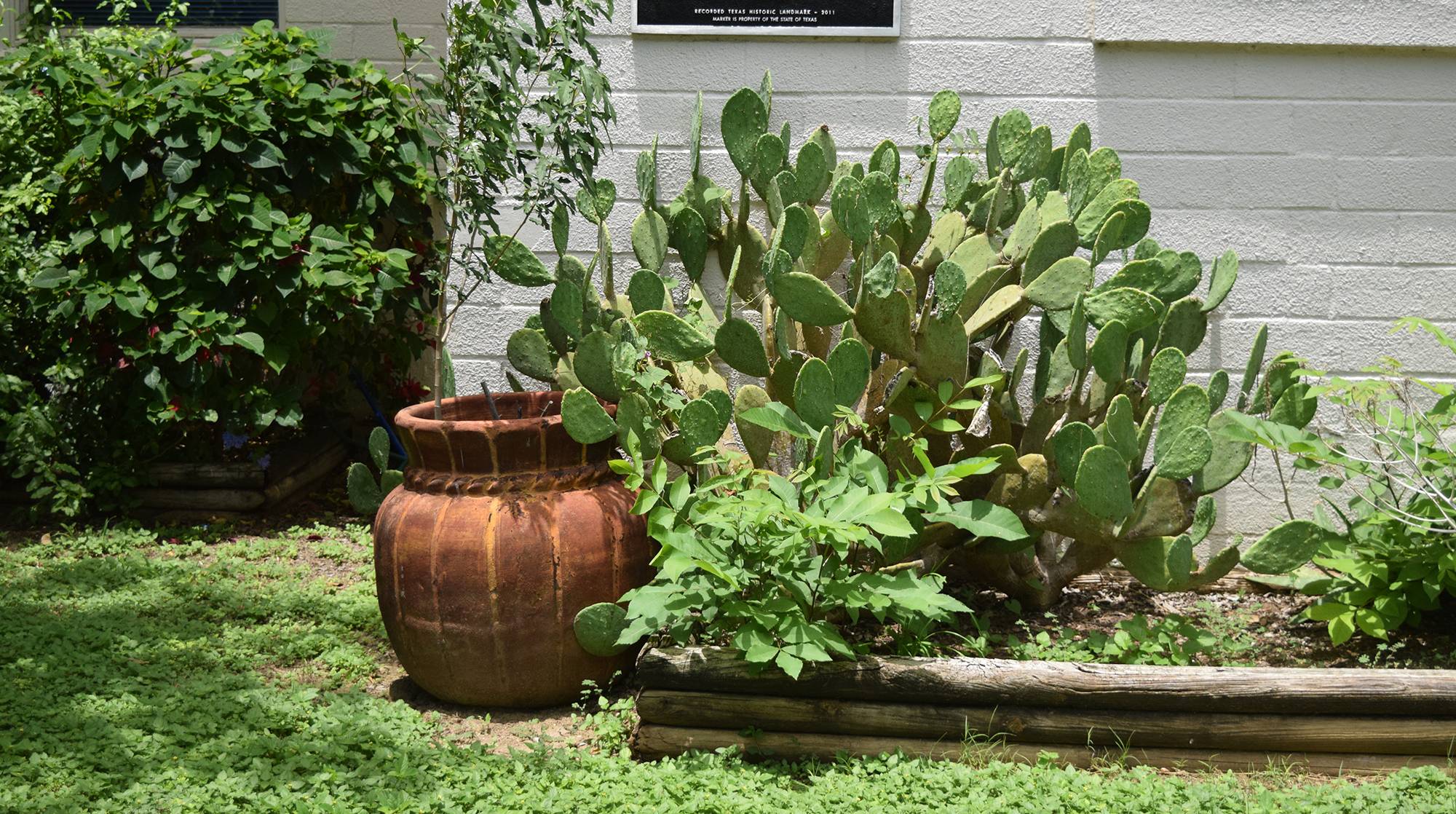Cotton Eyed Joe

Seeds of Empire: Cotton, Slavery, and the Transformation of the Texas Borderlands, 1800-1850
by Andrew J. Torget.
Chapel Hill: University of North Carolina Press, 2015
368 pp. $34.95 hardback
Reviewed by
Joseph Fox
Moses Austin’s 1820 trip to San Antonio de Béxar paved the way for thousands of American immigrants to Spanish Texas and eventually led to an independent Texas Republic and later, annexation to the United States of America. However, preceding Austin and his companions were three slaves (Marian, Richard, and Tivi) who escaped a Louisiana cotton plantation. After being captured by Spanish authorities in Béxar, the three refugees explained their desire to seek freedom from the cruel treatment of their master, James Kirkham, one of Moses Austin’s companions. In Seeds of Empire: Cotton, Slavery, and the Transformation of the Texas Borderlands, 1800-1850, Andrew J. Torget links the southern cotton frontier, which Marian, Richard, and Tivi were trying to escape from, to the formation of the Republic of Texas.
The central role of cotton and its link to slavery in Texas is a long neglected subject in popular culture. Correcting the heroic narrative of the Texas Revolution, Dr. Torget’s work is being hailed as visionary. Although the book deserves such praise, it is not the first to wrench Texas History from the exceptionalists but rather one that engages with and expands on the academic works that preceded it, notably Randolph Campbell’s An Empire for Slavery or Paul Lack’s Texas Revolutionary Experience. With an impressive list of primary and secondary sources, Dr. Torget uses new methods of compiling data to show important trends, like the number of slave holders in Texas, how many slaves they held, and the price of cotton. Using these statistics, Dr. Torget connects the Republic of Texas’s rise and eventual failure to the cotton industry and dependence on slave labor. With so much economic information, a historian or casual reader might be tempted to ascribe economic gain as the sole motive for the Texas revolutionaries and the political arguments over federalism as mainly a thin pretext. However, Dr. Torget increases the effectiveness of his argument by showing how “a complex tangle of cotton, slavery, and Mexican federalism—rather than a single factor—produced the fights that eventually led to the Texas Revolution.” By making such a distinction, Seeds of Empire shows cotton and slavery’s influence on political events in Texas rather than resorting to shallow reductionism.
However, certain points in the book could be presented in a clearer way. In the introduction, Dr. Torget describes the Republic of Texas as being “a dress-rehearsal for the creation of the Confederacy two decades later” citing Anglo-slaveholders immigrating from the South to farm cotton. However, a dress rehearsal implies a deliberate practice for a later performance. This would be an inaccurate description because Confederate succession from the United States was a willful political action while Texas independence was the result of not being allowed to join the Union. Perhaps in a future work Dr. Torget can expand the scope of his argument to the Antebellum and Civil War periods. However, more is needed to substantiate this claim than the economic and social overlap of Texas and the Deep South.
Furthermore, Seeds of Empire could be greatly expanded on through more individual accounts of slaves such as the story of Marian, Richard, and Tivi. Such stories root the social and economic forces and make the book more relatable. This is not to say that Seeds of Empire is lacking in human experience or primary source material, but that to really understand the full impact of slavery in Texas history, the individual experiences of its exploited victims should be given a larger role in the narrative. Still, this book is a substantial contribution to Texas History and for everybody interested in the Lone Star State.
Joseph Fox is a graduate student and research assistant in the history program at Texas State University in San Marcos, Texas. He has written articles for the Handbook of Tejano History, a historical marker for the Texas Historical Commission, and he is currently conducting research on the relationship between musicians and Texas brewing companies such as Lone Star, Pearl, and Shiner.
